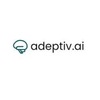List of Best AI Productivity Tools
Showing 5 of 5 productsMyPerfectWords Essay Bot is an AI essay writing tool designed to help students create high-quality essays quickly and efficiently. It offers diverse topic coverage, instant access, and ensures plagiarism-free content, making it an ideal resource for...Read MyPerfectWords Essay Bot Reviews
Zulo AI brings smart AI helpers into one spot online. It supports creative work like portraits and videos, and practical tasks like drafting and chat assistance. Zulo AI is built to simplify your work and spark your creativity—all in one place...Read Zulo AI Reviews
WriteRush is an AI-powered WordPress content plugin that helps you plan, write, and publish intent-based, brand-consistent content using SERP-driven outlines, guided workflows, and image generation, all without leaving WordPress...Read WriteRush Reviews
Adeptiv AI is your enterprise AI Governance Co-Pilot — automating the entire governance lifecycle so AI stays safe, compliant, and trustworthy. This AI-powered platform discovers AI systems, auto-maps 30+ global regulations...Read Adeptiv AI Reviews
Audionotes offers an innovative AI-driven solution that helps users record meetings, lectures, ideas, and personal reflections, and instantly converts them into organized, actionable notes...Read Audionotes Reviews
- What Is AI Productivity Tools?
- Top Reasons Why Businesses Need AI Productivity Tools?
- What Are the Top Key Features of AI Productivity Tools?
- What Are the Top Benefits of AI Productivity Tools?
- What Are the Steps to Choose the Right AI Productivity Tools?
- What Are the Types of AI Productivity Tools for Different Industries?
- What Are the Technology Trends for Best AI Productivity Tools?
- What Are the Deployment Options for AI Productivity Tools?
What Is AI Productivity Tools?
AI productivity tools refer to computer systems that leverage the capabilities of Artificial Intelligence (AI) in order to optimize workflow processes and enhance overall operational effectiveness. In contrast to conventional automated systems, AI productivity tools utilize self-learning algorithms to iteratively enhance accuracy and performance as time progresses.
AI productivity tools have a wide range of applications, encompassing the automation of tasks, the optimization of resource allocation, the enhancement of user experience, and the streamlining of operational processes inside organizations.
For instance, the utilization of artificial intelligence (AI) productivity solutions, such as automation services, has the potential to diminish the level of exertion required to accomplish various tasks, including but not limited to sending emails and booking appointments.
The best AI tools for productivity have the potential to assist organizations in identifying inefficiencies and formulating appropriate remedies. For instance, one such solution could involve optimizing employee schedules to enhance resource utilization.
The integration of artificial intelligence (AI) into customer experience technology has the potential to effectively identify and address consumer inquiries by delivering precise and prompt resolutions.
The utilization of artificial intelligence (AI) in analytics has the potential to offer valuable insights and recommendations for optimizing corporate operations. AI productivity technologies often aid in streamlining procedures, optimizing time utilization, and enhancing operational efficiency.
Top Reasons Why Businesses Need AI Productivity Tools?
1. Improved efficiency: AI productivity tools can automate routine and repetitive work, thereby enabling firms to allocate their resources towards critical decision-making processes.
2. Increased productivity: The best AI productivity tools have the potential to assist firms in reallocating resources and time, thereby enabling staff members to concentrate on intricate activities that necessitate human intelligence and creativity.
3. Improved customer service: AI-enabled technologies have the potential to assist organizations in promptly and precisely addressing consumer enquiries, hence diminishing the duration of wait time for issue resolution.
4. Competitive advantage: AI-enabled solutions have the potential to assist firms in maintaining a competitive edge by offering up-to-date information on customer behavior, pricing, and product features.
5. Increased ROI: AI-enabled technologies have the potential to assist organizations in improving workflows and automating operations that would otherwise require significant time and resources to be executed manually. This can ultimately contribute to the maximization of revenues.
6. Artificial intelligence-assisted search: AI productivity tools have the potential to enhance corporate operations by facilitating access to superior and more precise search outcomes, hence enhancing customer engagement and enabling the creation of more tailored products.
7. Automated workflow optimization: AI productivity solutions have the potential to assist organizations in mitigating human labor by automating various operations related to activities such as recruitment, customer onboarding, data mining, and analytics.
8. Intelligent data organization: AI tools for productivity can assist firms in effectively arranging and monitoring their data, hence facilitating enhanced decision-making procedures.
9. Improved data analysis: AI-enabled productivity solutions have the capability to analyze unstructured data and offer comprehensive insights and analytics, thereby assisting enterprises in directing their attention toward fundamental operations.
10. Increased staff satisfaction: The best AI productivity tools can offer personnel a streamlined and less intricate operational milieu, thereby diminishing the burden of monotonous duties and minimizing the amount of time expended on banal chores.
11. Enhanced customer experience: The integration of artificial intelligence (AI) technology into corporate operations has the potential to enhance consumer experiences through the provision of timely product suggestions, personalized marketing campaigns, and automated customer care.
12. Improved process monitoring: AI-enabled systems have the capability to facilitate businesses in monitoring and identifying any possible issues or anomalies across all operational processes, hence ensuring the seamless execution of these operations.
13. Predictive analytics: AI-enabled solutions, such as machine learning and deep learning tools, possess the capability to assist businesses in extracting valuable insights from extensive datasets and accurately forecasting future events.
14. Improving decision-making: Artificial intelligence (AI)-enabled solutions possess the capability to facilitate firms in efficiently recognizing prospective opportunities and formulating plans to effectively address dynamic market conditions.
15. Improved security: The top AI productivity tools have the capacity to mitigate the potential hazards associated with cyber-attacks and data leaks by actively monitoring and scrutinizing access to employees' accounts, as well as identifying and flagging any suspicious activity.
What Are the Top Key Features of AI Productivity Tools?
1. Automation: AI productivity solutions leverage natural language processing (NLP) techniques to comprehend and interpret various forms of textual content, such as documents, emails, and tasks.
This comprehension enables the automation of certain tasks within these contexts. As an illustration, artificial intelligence (AI) can assign priority to electronic mail messages, fill up electronic forms, and produce concise summaries.
2. Predictions: The best AI tools for productivity technologies can monitor the performance of teams to generate forecasts regarding the future efficiency of staff members. This facilitates the adaptation of teams' assignments and timelines by established expectations.
3. Reporting and Analysis: Artificial intelligence (AI) productivity solutions offer comprehensive reports and performance insights, facilitating teams in gaining a comprehensive understanding of the factors contributing to their attained outcomes.
4. Scheduling: The best AI productivity tools can provide precise scheduling recommendations, such as suggesting appropriate deadlines for assignments or optimal timing for meetings, as they are trained to comprehend contextual information.
5. Reminders and Notifications: AI productivity solutions offer reminders and notifications to team members, serving as a means to reinforce the significance of specific tasks or meetings.
6. Referencing: During the process of composing a paper, AI productivity tools offer contextual information and suggestions aimed at enhancing skills, fostering creativity, and promoting collaboration within teams.
7. Efficiency: Artificial intelligence (AI) productivity tools possess the capability to effectively automate laborious manual operations. For instance, artificial intelligence can replicate and remove files, compress visual representations, and perform language translations.
What Are the Top Benefits of AI Productivity Tools?
The top benefits of AI productivity tools include:
1. Increased Efficiency: AI productivity solutions can automate monotonous operations, thereby enabling individuals to allocate their attention to tasks that are more significant and intricate.
This can potentially enhance operational efficiency by significantly alleviating human workload automation while maintaining productivity levels.
2. Cost Savings: AI productivity solutions have the potential to generate cost savings for enterprises by automating tasks either partially or entirely.
3. Better Decision Making: Artificial intelligence (AI) tools possess the capability to rapidly and precisely evaluate vast quantities of data, thereby enabling users to expedite decision-making processes and enhance the quality of their conclusions.
4. Improved Collaboration: The best AI tools for productivity facilitate seamless project sharing and collaboration among users, hence enhancing the efficiency of communication and workflow processes.
5. Increased Visibility: AI tools for productivity facilitate the monitoring and management of various operations inside an organization, hence enhancing visibility into the allocation of time and resources.
6. Smarter Workflows: AI productivity technologies have the potential to optimize several operations, encompassing data storage and task management. This facilitates the development of a streamlined and efficient workflow.
What Are the Steps to Choose the Right AI Productivity Tools?
1. Identify your business’s AI productivity needs: Prior to the selection of any artificial intelligence (AI) productivity tool, it is imperative to conduct a comprehensive evaluation of the existing circumstances and ascertain which AI productivity tools would most effectively cater to the specific requirements of the organization.
One should carefully evaluate the objectives and activities they aim to achieve, the potential applications, and the extent to which the tool will contribute to the overall value proposition of their enterprise.
2. Research: After determining the specific requirements for AI productivity, the next step is conducting research on the various solutions that are already accessible. Evaluate the characteristics and advantages of each instrument and assess their compatibility with your specific requirements.
Conduct a thorough examination of evaluations and testimonials to acquire a more comprehensive comprehension of the performance of each instrument in practical contexts.
3. Evaluate Costs: Before making any judgments, it is advisable to conduct a thorough study of the financial implications associated with any AI productivity tool. The first step in the process is to determine the sort of budgeting that aligns with your financial comfort level.
Subsequently, it is essential to identify the most suitable instrument that falls within the confines of this budget.
4. Get Feedback: After reducing the number of available tools to a select few, it is advisable to seek input from other users to obtain feedback. It is advisable to get insights from colleagues, clients, and industry professionals regarding their firsthand encounters with distinct artificial intelligence (AI) productivity products.
5. Make a Decision: Ultimately, it is imperative to determine the best AI productivity tools that most effectively align with one's requirements. Conduct an assessment of the characteristics, user evaluations, and financial implications associated with each tool, to ascertain the tool that provides optimal value for your enterprise.
What Are the Types of AI Productivity Tools for Different Industries?
There exists a diverse range of artificial intelligence (AI) productivity solutions that have been specifically developed to assist firms operating in various industries.
AI productivity tools encompass a wide range of technologies, including chatbots driven by artificial intelligence (AI) and solutions utilizing natural language processing (NLP).
1. Artificial Intelligence (AI) Chatbots: Artificial intelligence (AI)-driven chatbots are widely employed across various industries to facilitate customer service and enhance marketing efforts.
Chatbots are employed in the field of customer service to expedite the process of providing clients with the necessary information by utilizing natural language processing techniques to comprehend their inquiries. Chatbots can also serve as a valuable tool for marketing purposes, facilitating efficient and convenient product or service discovery for customers.
2. NLP Solutions: Natural language processing (NLP) technologies are employed to facilitate the automation of monotonous and recurring jobs in text and voice-based operations.
Natural Language Processing (NLP) has the potential to be employed to analyze client feedback, automate customer service responses, and identify anomalies within consumer data.
Natural Language Processing (NLP) can also be employed to discern client sentiment and examine customer conversations to gain valuable information for various industries.
3. AI-Powered Analytics Tools: The best AI tools for productivity technologies are utilized to rapidly discern patterns and trends inside data-intensive sectors, such as healthcare and finance. AI-powered analytics solutions have the potential to enhance organizational decision-making and generate valuable insights from customer data and transactional data.
4. Autonomous Agents: Autonomous agents refer to artificial intelligence (AI) systems that are designed to carry out activities and procedures automatically, requiring little or no human involvement. Autonomous agents exhibit significant use in repetitive tasks, namely within domains such as manufacturing, logistics, and customer support.
The utilization of autonomous agents in the field of finance has witnessed a notable rise, as they are being employed to automate processes such as credit application processing and fraud detection.
5. Robotic Process Automation (RPA): Robotic Process Automation (RPA) is an artificial intelligence (AI)-enabled tool that is employed to streamline and automate monotonous, arduous, and repetitive operations.
Robotic Process Automation (RPA) solutions possess the capability to engage with pre-existing applications, including workflow systems, websites, and databases, to execute various activities, such as data entry and filing.
Robotic Process Automation (RPA) tools have the potential to substantially decrease expenses and enhance the precision of operational activities.
What Are the Technology Trends for Best AI Productivity Tools?
The current technological advancements in AI productivity tools encompass the use of intelligent automation, machine learning, and natural language processing to effectively harness data, enable customization, and facilitate collaboration between machines and humans.
Artificial intelligence (AI) solutions have the potential to assist in various areas such as task management, data analysis, forecasting, optimization, natural language processing, process automation, and other related tasks.
The utilization of AI-driven productivity technologies is progressively becoming prevalent in the automation of repetitive work procedures, enhancement of customer service, and augmentation of staff productivity.
AI productivity solutions encompass a variety of applications, such as workflow automation tools, analytics platforms, customer care session bots, speech recognition software, and document analysis platforms.
The best AI tools for productivity have the potential to be customized according to the specific requirements of individual users, hence enhancing their overall productivity.
What Are the Deployment Options for AI Productivity Tools?
The available deployment methods for AI productivity tools are contingent upon the specific service or product being offered. In general, a variety of deployment options are commonly utilized.
1. Cloud-based solutions: Frequently, these models adopt a subscription-based approach, enabling clients to avail themselves of AI tools for productivity and services at a relatively modest upfront expense.
2. On-premise solutions: Companies or organizations can deploy artificial intelligence (AI) products and services on their internal server infrastructure, typically with the assistance of a third-party vendor.
3. Hybrid solutions: Organizations have the option to strategically implement a hybrid infrastructure comprising both cloud-based and on-premise solutions to effectively cater to their specific requirements.
4. Managed solutions: A managed solution refers to a scenario in which a vendor assumes ownership and responsibility for the management of an artificial intelligence (AI) application on behalf of the customer.
5. Software as a Service (SaaS): Software as a Service (SaaS) is a delivery paradigm that facilitates the provision of software through internet-based access on a unified platform.




